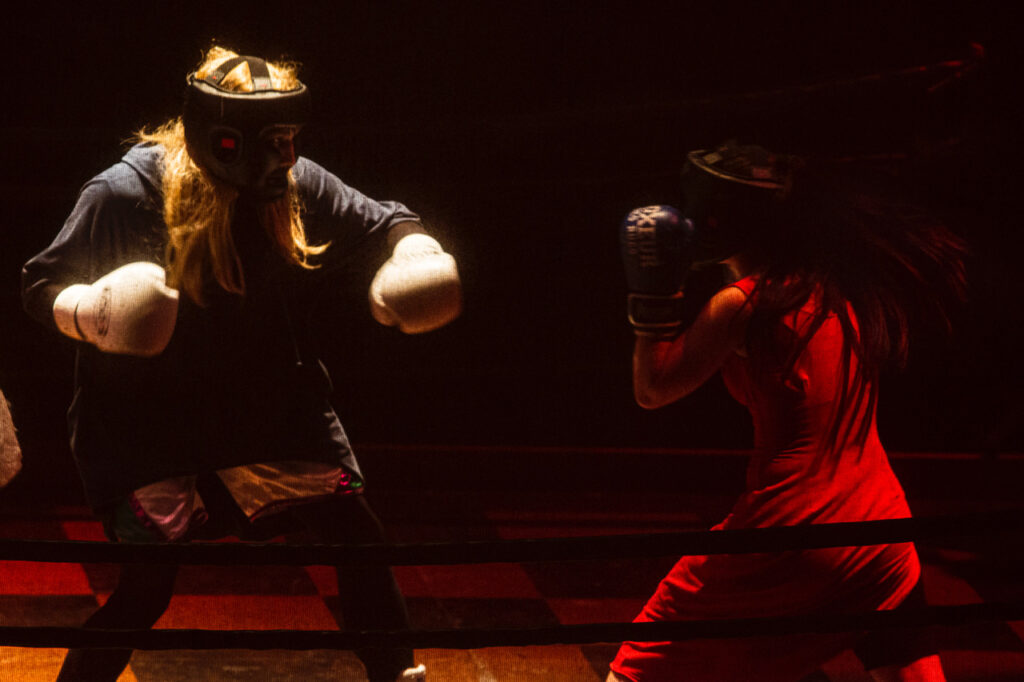(Pontremoli, Italy) – It was Saturday night in Pontremoli, Italy, and the local theater was packed. When the lights dimmed, a 16-year-old girl walked onto the stage. She recited lines from a monologue, while images of wrists restrained in chains appeared on a giant screen behind her.
The audience was enthralled by her performance, as they might be with any talented actress. Except this woman was not an actress. She was a prisoner from the local rehabilitation institute, the Penal Institute for Minors (PIM.) And her stage debut was part of a unique rehabilitation program for juvenile delinquents in Italy.
Italy has one of the most crowded prison systems in the European Union (EU.) Foreign detainees are disproportionately represented in Italy’s prison system. They make up only eight percent of the country but account for 32 percent of the prison population. The system is stressed by Italy’s pre-trial detention policies, where foreigners are prohibited from expatriation to their countries of origin. Inmates frequently experience poor living conditions due to overcrowding. There are reports of physical violence by guards. Because of these conditions, Italy ranks tenth among the countries with the highest rate of suicides in prison, at roughly ten and a half percent.
The juvenile detention system shares some similarities with adult prisons. But the population of detainees is far lower, leaving more room to explore humane conditions and treatment options. This is largely because judges use it as a last resort. When young women do end up incarcerated, the prison administration and the Ministry of Justice are mandated to promote interventions “which must aim at social reintegration.” To this end, PIM has embraced live theater as a means for prisoner rehabilitation. The program brings the young women out of the cells and onto the stage through a series of workshops that culminates in a week of performances for the community. This year’s play is “Boxing Margot.” The titular character, Margot, is a teenager who uses boxing as a form of escapism. She navigates this world alongside three other women. They struggle through defeat and redemption while looking for a way to “come back to themselves.”
A Unique Approach to Rehabilitation
PIM is located in Pontremoli, a small town of about 7000 people. It is famous for its cuisine, like Testaroli, Amor, and Torte d’Erbi, as well as its mountainous landscape in the Tuscan-Emilian Apennines. Few penal institutions in Italy have adopted policies to provide cultural and social exchanges between young prisoners and host communities. The PIM is an integral part of the urban and social fabric of the town.
The institute has a progressive approach to rehabilitation. It offers individualized paths of study to meet the needs of the girls that it houses. “It’s an excellent model for Italy. It is possible to carry out a better rehabilitation process than elsewhere because there is the possibility of carrying out training and work activities,” said Jacopo Maria Ferri, a lawyer and the mayor of Pontremoli.
![Penal Institute for Minors in Pontremoli Centre.[Credit: Francesca Braga]](https://theclick.news/wp-content/uploads/2022/12/IMG_6015-1-300x242.jpg)
Penal Institute for Minors in Pontremoli Centre. [Credit: Francesca Braga]
“There are few inmates in the Institute, and most of them are foreigners,” Ferri said. In Italy, foreign minors account for roughly 45 percent of detainees. This can partly be explained because police officers pay more attention to crimes committed by foreigners. Meanwhile, Italians are more likely to report offenses committed by foreigners to authorities. But data shows that there is no link between immigrants and criminality. Foreigners, whose families often reside in their countries of origin, struggle to find alternatives to detention.
PIM is Europe’s sole female-only penal institution. In 2021, the institute hosted only 42 girls. There are typically between five and eight girls at any given time. Most of the detainees are Roma, imprisoned for property and petty theft.
The exclusivity of the institution allows it to be less punitive, with fewer bars and gates, while meeting the requirements that the constitution sets out. The Italian Constitution requires that punishment for criminals “must aim at the re-education of the convict.” There are strict limits on punishments aimed at avoiding inhumane treatment. “Sentences should guarantee study, socialization, and professional courses to help minors build a dignified future once their sentence has been served,” said Ferri. “This way, the detainee will be less inclined to commit crimes again.”
Community and Detainees, Working Together Without Barriers
![Flyer of the play “Boxing Margot.” [Credit: Francesca Braga]](https://theclick.news/wp-content/uploads/2022/12/IMG_9678-293x300.jpg)
Flyer of the play “Boxing Margot.” [Credit: Francesca Braga]
“Boxing Margot,” is an original script, staged for the first time at Teatro della Rosa. The four female detainees, performed alongside professional actors and citizens of Pontremoli. The stage was small, but the performance was commanding. The actors mixed monologues with boxing matches to create a unique piece of theater.
Following the performance, the community was able to meet the detainees. “The project represents the second stage of a process started in 2021 on the theme of forgiveness,” said Amaranta Capelli, the organizational director of the Teatro del Pratello. The characters in the play seek redemption through boxing and ultimately build a better life. Capelli highlighted how hard the detainees worked to make the production a success. This included “daily boxing training with a professional boxer.”
The plot follows Margot, the protagonist, as she struggles through a coma. Three hospital beds tragically dress the stage. The actresses move between the beds as they tell the story. In the first bed, Margot is the victim of an assault by her schoolmates. In the second, she is faced with her mother’s death. Finally, in her last bed, she is at the peak of her career, having recently won her best match.
“Boxing Margot” is a play about forgiveness. Margot learns to pick herself back up despite the odds and her past mistakes.
Locals are Mixed on the Presence of a Prison
Residents of Pontremoli came out in droves to support Boxing Margot through its theatrical run. But the community is mixed as to whether the prison should be in the town at all.
“The cost of running the structure is high, considering the number of people hosted,” said Laura Michelini, a citizen of Pontremoli. She doesn’t like PIM and would prefer for it to be relocated to a town that could better support the cost.
But the institute is viewed by most of the community as an integral part of the urban and social fabric of the village. “With just a few prisoners, it is possible to build an effective reintegration process and establish a relationship with judicial operators,” said Danilo Ricco, a local resident.
A Happy Ending
At the end of the show, when the lights went up, the actors made their way to the front of the stage to take a bow. In the distance, one of girls spotted a familiar face in the packed house. It was her mother. She hurdled her body off the stage, through the crowd, and into her mother’s arms. The audience watched in awe. If the play was meant to help bridge the gap between the juvenile prison system and the world beyond the prison walls, this small moment of hope between a mother and daughter was surely proof it was working.


